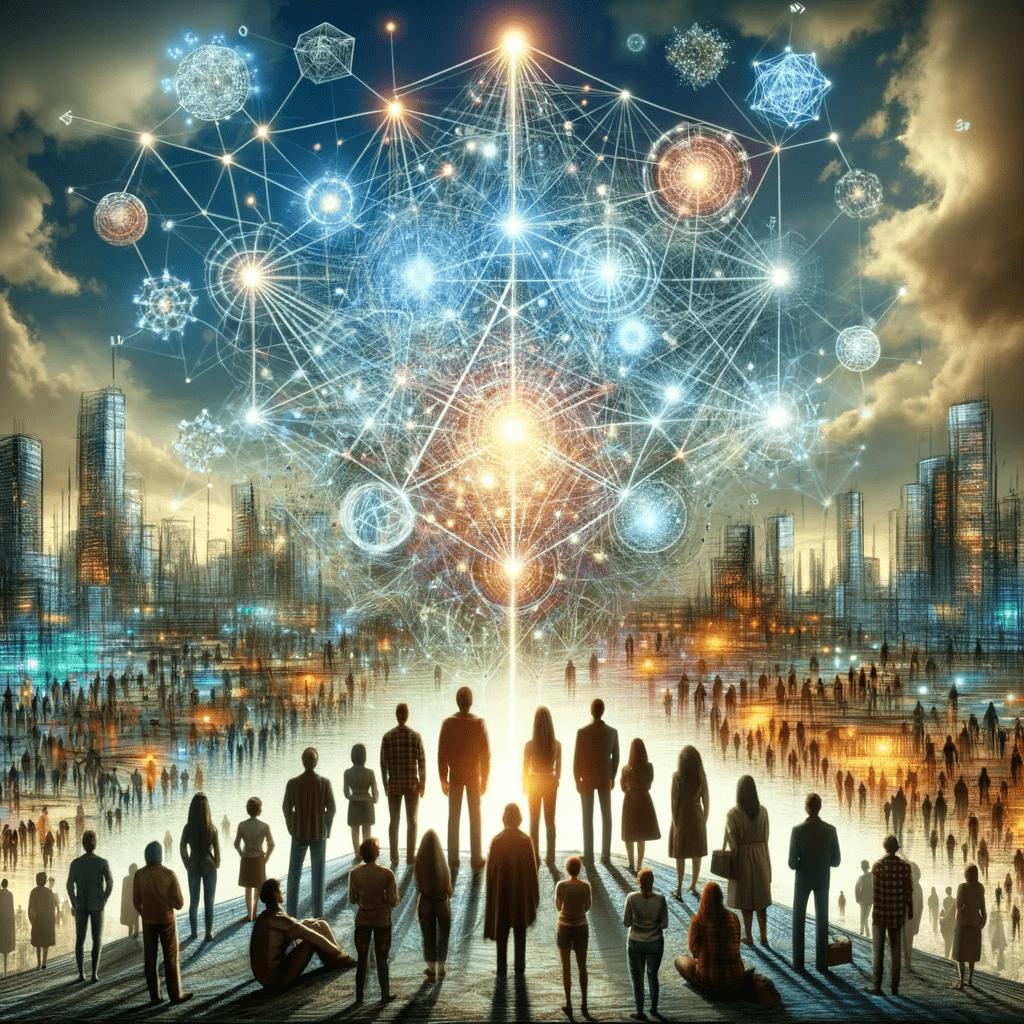Consensus Reality

Consensus reality refers to the collective beliefs and perceptions held by a society or a group about what constitutes reality. These beliefs are typically shaped by shared experiences, societal norms, culture, and communications. In essence, consensus reality is what a majority in a group agrees to be “real” or “true,” even if that understanding isn’t necessarily an objective fact.
Cognitive scientists and sociologists believe that the human mind doesn’t just perceive reality as a passive observer; instead, it actively constructs its understanding of the world based on various inputs. This construction process is influenced by both individual experiences and the broader societal beliefs and values. When individual constructions align with the wider societal perceptions, they form the bedrock of consensus reality.
In a study titled “Shared Reality: Experiencing Commonality With Others’ Inner States About the World” published in the journal Perspectives on Psychological Science, E. Tory Higgins details how humans have a psychological drive to share their reality with others. This shared reality helps in mutual understanding and is essential for effective communication, cooperation, and even the very existence of societal structures.
The mechanics of our brain also play a role. When presented with ambiguous information, the brain often relies on prior experiences and societal expectations to interpret and make sense of it. This cognitive mechanism ensures that we don’t have to process every piece of information from scratch.
In “The Predictive Brain: Anticipations, Action, and Monopoly of the Present,” published in Neuroscience & Biobehavioral Reviews, Jakob Hohwy discusses the brain’s predictive processing. According to this view, the brain continuously creates and updates a model of the world, using social and cultural inputs to predict sensory inputs and adjust behavior. This model becomes part of the consensus reality when most individuals in a group possess similar predictive frameworks.
Prominent sociologists, anthropologists, and cognitive scientists have looked into the topic of consensus reality. Pierre Bourdieu, for instance, introduced the idea of “habitus,” which refers to the shared dispositions and perceptions within a social group. Similarly, Thomas Kuhn’s notion of “paradigm shifts” in science underscores how a prevailing consensus can change over time.
One seminal work is Thomas Kuhn’s “The Structure of Scientific Revolutions,” which, although not exclusively about consensus reality, touches upon the idea when discussing scientific paradigms. Kuhn posits that science doesn’t progress in a simple, linear fashion but rather through shifts in the prevailing consensus or paradigm.
In his book, Kuhn introduces the concept of “normal science,” which operates within the prevailing paradigm or the consensus reality of the scientific community. Only when anomalies challenge this consensus does the possibility of a paradigm shift arise, changing the consensus reality.
The nature of consensus reality is enigmatic, as vividly demonstrated by phenomena like the Mandela Effect. The Mandela Effect points to instances where large groups of people recall specific events or details differently than documented in our historical records. One notable instance is the widespread belief that Nelson Mandela died in prison during the 1980s, even though historical timelines indicate his passing in 2013. This effect suggests that our experience of reality might be subjected to shifts or alterations. While many individuals recall events in one particular way, there are often significant segments of the population who remember them differently, as if they have experienced an alternate timeline. Such divergent memories underscore the fragility and potential fluidity of our shared reality, suggesting that our collective experiences may not always align with the currently accepted historical narrative. It stands as a compelling testament to the idea that, even in an age of information, our grasp on a unified reality may be more tenuous than we think.
One of the most fascinating threads in consensus reality, is the collective acknowledgment of UFOs, non-human intelligences, and an extraterrestrial presence overseeing our world. Accepting this as real reshapes our understanding of existence and our place within the cosmic hierarchy. The acknowledgment that we are not alone in the universe, and that more advanced beings have taken an interest in our evolution, suggests a profound interconnectedness of life across the cosmos. This collective understanding shifts paradigms, encouraging humanity to view itself not just as terrestrial inhabitants, but as part of a grander cosmic community. With this acceptance, philosophical, scientific, and spiritual discussions are infused with new perspectives and possibilities, all pointing to a universe rich in life and wisdom. This dimension of consensus reality not only broadens our horizons but also challenges us to aspire to greater unity and understanding as stewards of Earth in a populated universe.


